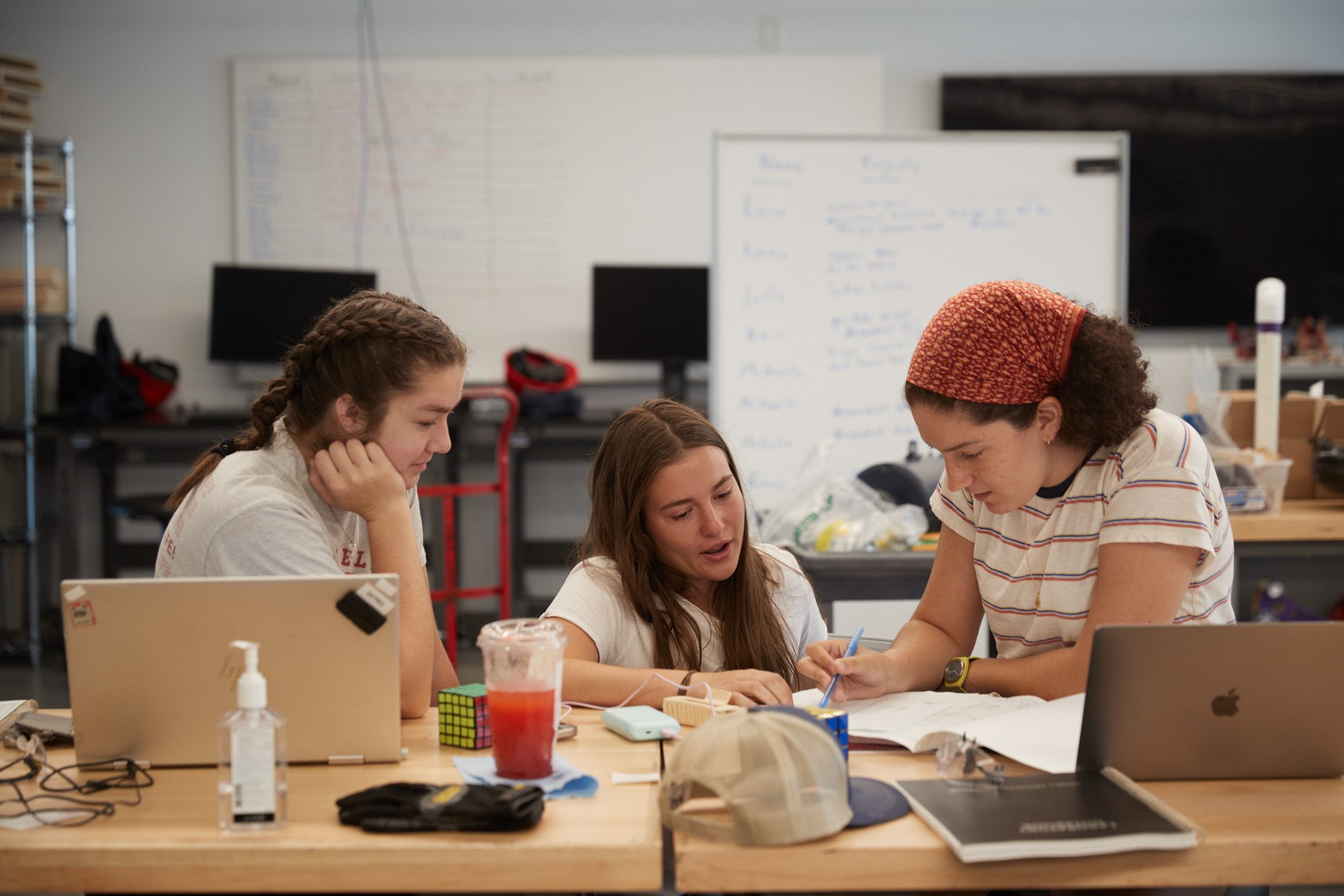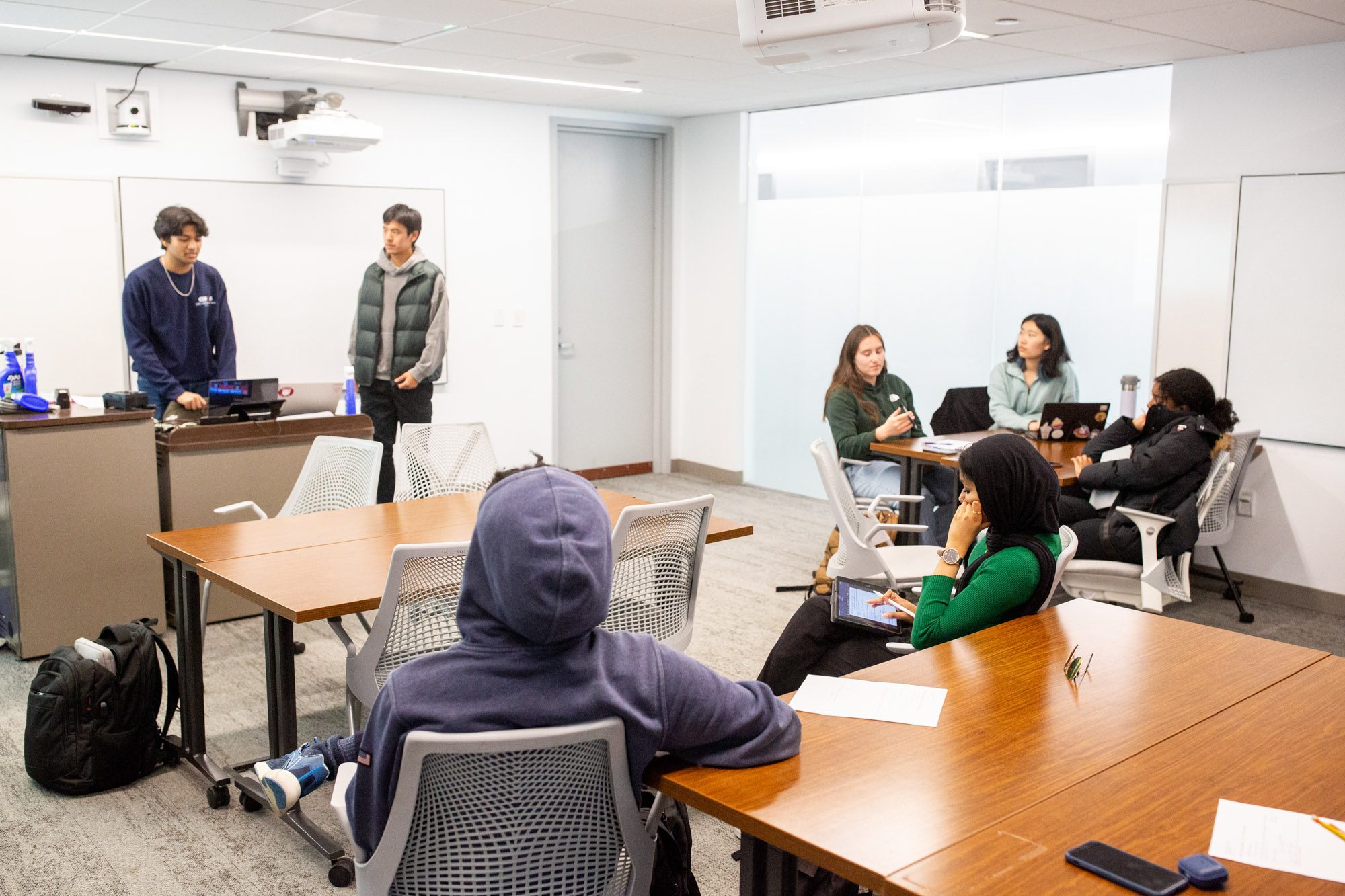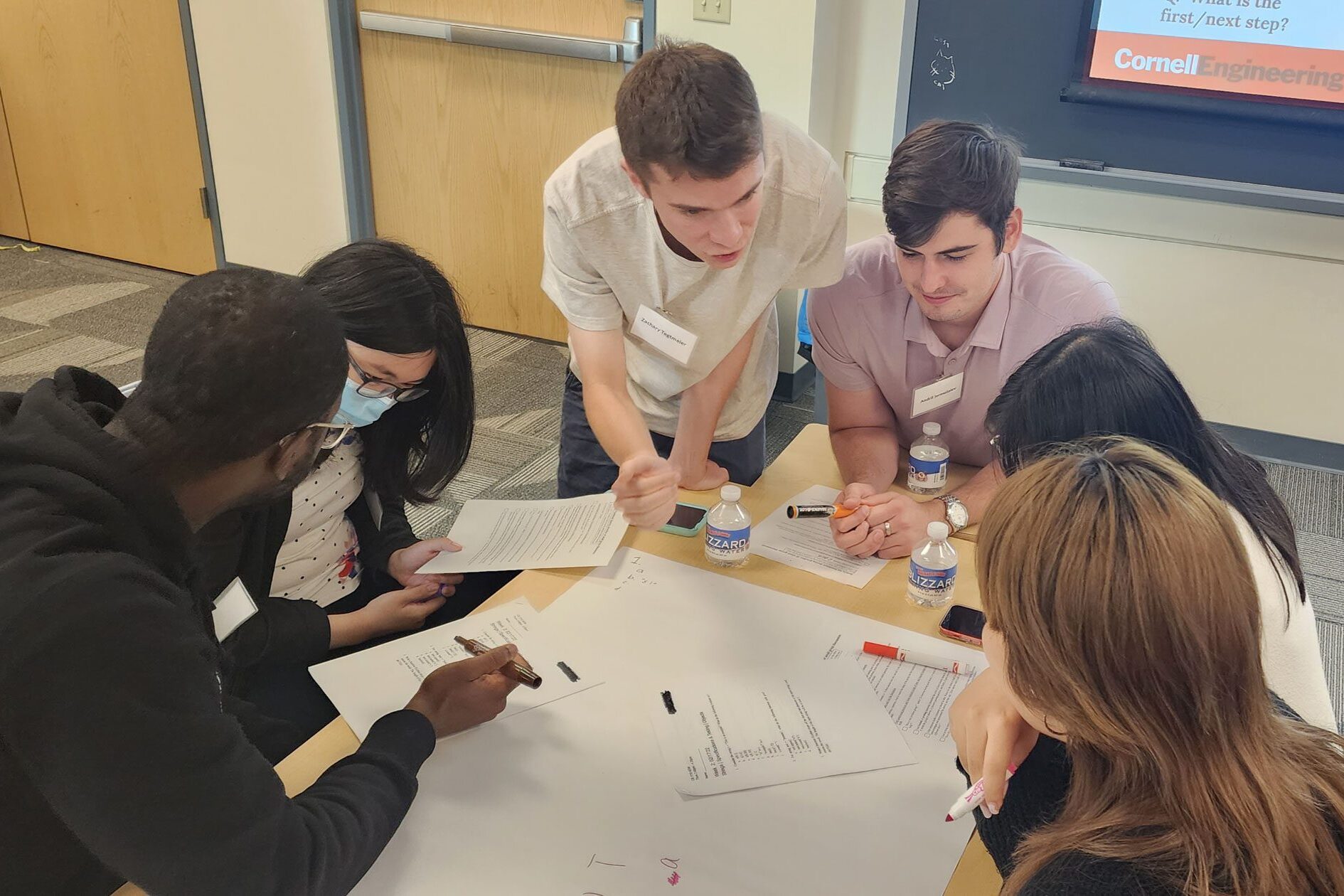


The Engineering Advising Office
The Engineering Advising Office is a good place to start if students are unsure of where to find various kinds of information. The professional advising staff members support the work of faculty advisors and focus on first- and second-year students prior to affiliation with a major. They work with students on an individual basis on academic and personal matters. They also provide a number of structured offerings in which all engineering students participate.
Academic Concerns
The Academic Concerns process is designed to identify and support students who may be experiencing academic challenges before those challenges become more serious. Early intervention is critical to student success—it allows advisors to provide timely, personalized support that can help students stay on track both academically and personally.
Faculty and instructors are encouraged to submit Academic Concern notices for undergraduate students who are earning low grades, missing deadlines, or exams without approval, showing a lack of engagement with course material, or exhibiting patterns of excessive absences. These notices are routed to the Engineering Advising office, where student services advisors reach out directly to students to offer support, encourage communication with instructors, and connect them with key resources such as the Learning Strategies Center and Cornell Health.
In addition to responding to faculty-submitted concerns, the college proactively identifies students performing at or below the C– level after the first and second preliminary exams and contacts them to promote the use of tutoring and other academic services. In some cases, advisors will follow up with one-on-one consultations to better understand the student’s situation and develop a concrete plan for improvement. Academic Concern reports also provide valuable context for the College Academic Standards, Petitions, and Credit Committee when reviewing a student’s performance and engagement throughout the semester.
Faculty Advising
Undergraduate students are assigned a first-year Faculty Advisor with whom they work until they declare a major (or “affiliate”). Once they decide on and are accepted into a specific major, students are assigned a faculty advisor with expertise in that particular major.
The faculty advisor is the person students will see when they have questions about the academic requirements of the university, the college, or the schools and departments. Faculty advisors evaluate each semester’s program, approve course changes, and provide guidance in the interpretation of college and department rules.
All first-year advisors are versed in the Common Curriculum, so they can assist first- and second-year students to pursue any engineering major. Faculty advisors help students translate their interests into an appropriate course of study, evaluate their curriculum and work load, monitor their progress toward a degree, and recommend they take advantage of the diverse opportunities at Cornell.
It is each student’s responsibility to keep honest and open communication with their advisors and share information about their goals and interests to better enable the advisors to guide them. The advisors’ role is to be available to listen to student needs and questions and to help students navigate the curriculum and academic opportunities in general. However, it is not the faculty advisors’ role to provide specific academic help. For example, while the advisor can recommend a tutor, he or she does not personally provide tutoring. The advisor also may be aware of a number of excellent career opportunities, but his or her main role with respect to careers is to direct students to the appropriate resources available to them.
Engineering Seminar
The Engineering Seminar (ENGRG 1050) for first-year students, a required one-credit course, introduces students to the structure and resources of the Cornell Engineering curriculum, ensuring that students are aware of the academic requirements and what the program expects of them. The course provides an introduction and orientation to the college’s many activities (curricular as well as extracurricular) and helps in creating a common identity among engineering students by making them conscious of the college’s uniting values and ethical principles. Perhaps most importantly, the course ensures frequent, informal meetings between students and their faculty advisors, in addition to providing peer advisors (engineering sophomores, juniors, and seniors) with a variety of backgrounds and interests. The seminar creates an environment within which a supportive network and effective communication can develop and flourish.
ENGRG 1050 Peer Advisors are sophomore, junior, and senior engineering students who have volunteered through Engineering Advising to help new students understand the course selection process, meet other engineering students, and adjust to life at Cornell. They are invaluable sources of practical information and emotional support during a student’s first semester in the college. All first-year students are assigned one or two peer advisers, who receive training in group dynamics and mentoring in order to provide support to the faculty in first-year seminars and to the students enrolled in them.
Office of Inclusive Excellence
The Office of Inclusive Excellence offers a variety of programs and services to engage and develop both undergraduate and graduate students, as well as faculty, staff, and future Cornellians. Undergraduate student support includes scholar programs, summer research programs, and academic support including tutoring through the CUES program.
Academic Excellence Workshops (AEWs) are one-credit courses offered in conjunction with core engineering courses in math, computer science, and chemistry. These weekly two-hour cooperative learning sessions are designed to enhance student understanding through peer-facilitated group work on problems at or above the level of course material.
Peer tutoring is a free service offered by the Office of Inclusive Excellence. Peer tutors are trained to assist other students in core engineering courses and can be contacted directly by students to set up convenient times to meet and discuss coursework.
Engineering Career Center
The Engineering Career Center works in tandem with Cornell Career Services to provide career development support and assistance to students. Cornell Career Services maintains a comprehensive library of resources to facilitate students’ exploration of their many career options. They also have staff members certified to administer standardized inventories to help students identify and narrow their interests.
The Engineering Career Center brings approximately 230 employers to campus every year to conduct interviews for full-time, summer, and co-op positions using Cornell Handshake. Cornell Handshake is a web-based network of career information that is used to inform students of events, career fairs, jobs, internships, co-ops, on-campus recruiting, and much, much more. Students can opt to receive e-mails targeted to their career interest area(s). They can follow employers to get up to date notifications when employers of interest are hosting and event or attending a career fair.
We encourage all students to become familiar with the Career Center and to make use of the group and individual advising offered in key areas such as:
- career applications of majors
- job shadowing
- career-based internships/co-ops
- job search strategies
- resume preparation and critiquing
- interview practice
- salary negotiation
Outcomes Dashboard
Cornell Career Services Undergraduate Outcomes surveys bachelor’s degree recipients for six months following graduation, and produces a report summarizing postgraduate activities for the University as a whole. The Cornell Outcomes Dashboard allows you to filter the outcome date to answer your specific questions.
University Resources
Student & Campus Life serves all Cornell students and strives to promote an educational environment where you can thrive in pursuit of your academic and personal goals. Below are resources to guide students as they navigate Cornell.
- Identity Resources (Office of the Dean of Students)
- Health & Wellness
- Residential Life
- Getting Involved
- International Services